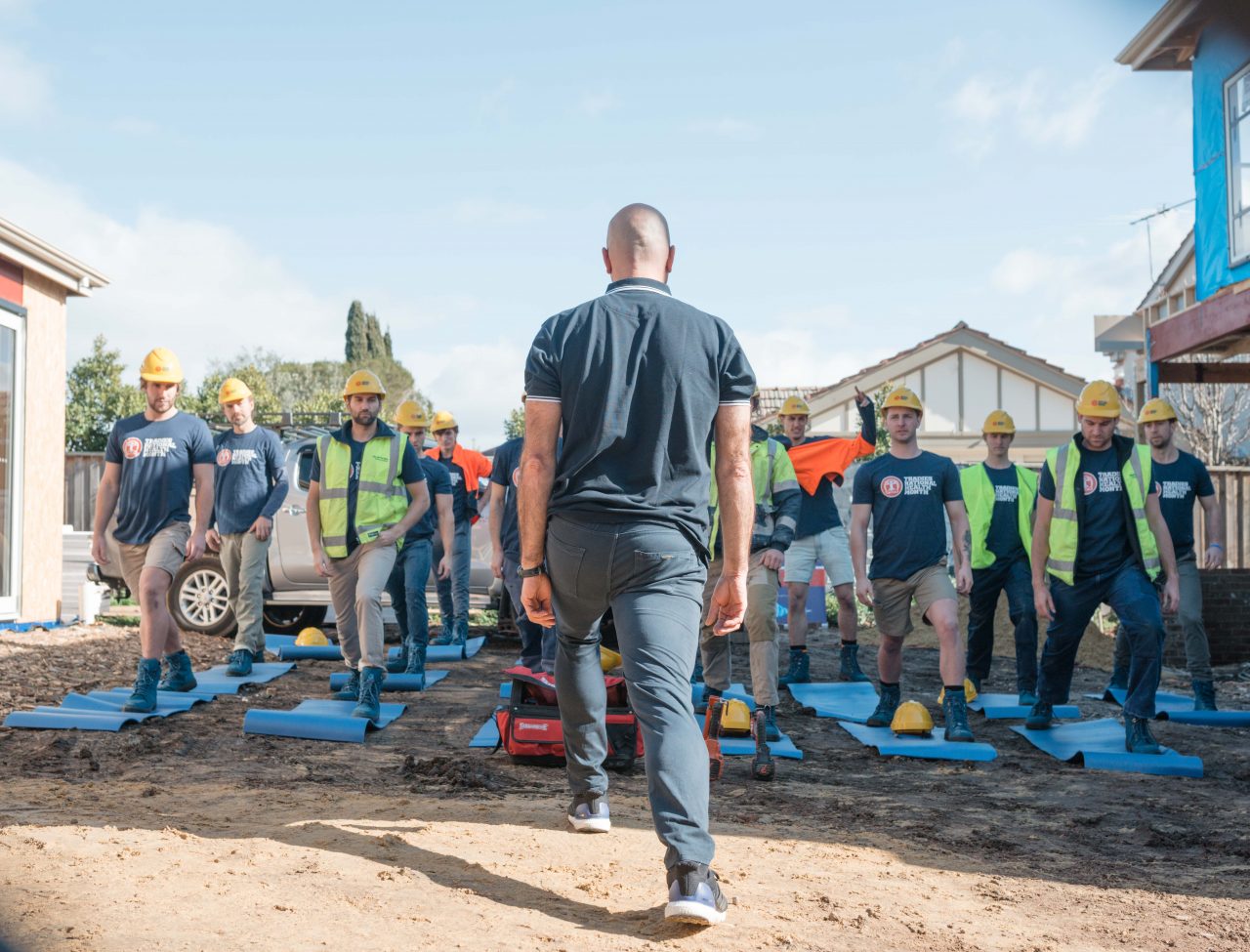Tradies’ National Health Month – August 2016
Tradies’National Health Month is raising awareness of the risks posed to those who work in trade occupations – among individuals, their families, employers and the wider community.
While we’ve seen improvements, Australia’s trade industry continues to have among the highest health and safety issues of any sector as showcased in this health ‘snapshot’. Time off work due to poor health and injury has a significant impact on business, communities, the health system and the economy—and this impact will grow if we don’t take steps to change behaviour.
The APA is urging employers and unions of trade occupations to prioritise their employees’ health now and into the future.
Tradies’ health must be everyone’s priority—this month, all employers, physiotherapists and tradies have the chance to get involved. Find out how.
What’s the issue?
|
Musculoskeletal injuries |
Falls, slips and trips
|
 |
 |
Disease
The problem of musculoskeletal disorders is improving (the number of serious claims fell by 7 per cent) but claims arising from diseases increased by 4 per cent*. When we say ‘disease’ we’re not talking about scary life-threatening stuff: it can be common digestive system disorders, mental health, and issues with your nervous system. But, as anyone who’s been unwell will tell you, these ongoing diseases can play havoc with your quality of life. (*Period of 2000-01 and 2011-12)
Who’s affected?
For tradies specifically – injury and musculoskeletal disorders rates of claims
| Occupation | Frequency rate (serious claims per million hours worked) | Incidence rate (serious claims per 1000 employees) |
| Labourers | 18.7 | 25.1 |
| Machinery operators and drivers | 11.2 | 22.3 |
| Technicians and trade workers | 7.4 | 14.4 |
If you’re over 55, you could be at even higher risk of these issues based on previous trends in the number of serious claims awarded to this age group.
What can I do?
See a physio! You might be surprised to know that physiotherapists deal with more than just backs. They also support people with chronic health impacts (like heart disease and diabetes), and the lesser-known issues that men face, like pelvic floor problems. What’s a pelvic floor? We’ve got a physio to explain how you might be affected by pelvic floor issues.
In short, physiotherapists are experts in helping to reduce the alarmingly common health and safety issues associated with working in labour intensive industries.
But if you want some tips to help you keep fit for work, follow these golden rules.
- Can you bend and reach without strain? Keep your flexibility by doing 5-10 minutes of stretching every morning
- Take frequent microbreaks during the day rather than infrequent long breaks
- Stay hydrated—2-3 litres each day is what you need!
- Keep your core strong—go with your other half to Pilates once in a while
- Sleep well and eat well—give yourself energy to help you remain healthy, alert and safe
Get a grip on the way you handle objects
- Keep your chest up where possible when handling
- Keep loads close to the body
- Avoid awkward and twisted postures
- Ask for assistance when required
- Use equipment to make tasks safer and easier
Something doesn’t feel right?
Addressing niggles, aches and pains early prevents a small problem turning into a large one. Injuries shouldn’t affect your work, family and social life. So don’t ignore the warning signs.
About us
 With over 23 000 physiotherapist members, the Australian Physiotherapy Association (APA) is the peak body representing the interests of Australian physiotherapists and their patients.
With over 23 000 physiotherapist members, the Australian Physiotherapy Association (APA) is the peak body representing the interests of Australian physiotherapists and their patients.
Head to physiotherapy.asn.au to find out more.


